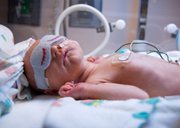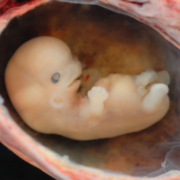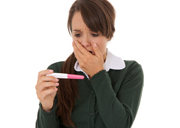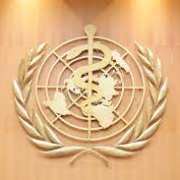Abortion and breast cancer: just scaremongering or could there be a link?
A new report by Education for Choice (EfC) on pregnancy counselling states that: ‘linking abortion to breast cancer and ‘post-abortion stress’ is ‘medical misinformation’. It also states that: ‘Cancer Research UK has confirmed that abortion does not increase the chance of developing breast cancer. Despite this, a purported link has been promoted by anti-abortion organisations.’
The EfC report presumably bases its claim on the RCOG report ‘The care of women requesting induced abortion from 2011, which states that: ‘Women should be informed that induced abortion is not associated with an increase in breast cancer risk’.
The evidence against any possible causative link between abortion and later breast cancer episodes therefore seems clear. But is this link so indisputable? Is it really ‘medical misinformation’ to suggest that there may be a link?
The possible existence of a link has been a cause of controversy for many years now, with different research evidence cited to both support and deny a link.
I would suggest that the best that can be prudently claimed at this point is that ‘the jury remains out’ on any link between abortion and breast cancer. The evidence may be unclear whether there is a definite causative link, and it is undoubtedly disputed, but it is NOT justified to claim that evidence for a link is non-existent or misinformed.
There is now enough evidence available for the debate to remain open and for women to be informed about the evidence both ways.
Lets take a brief look at some of the research, both for and against a link.
The most recent study on the link is a new large meta-analysis in 2014 by Huang et al: a total of 36 articles (two cohort studies and 34 case–control studies) covering 14 provinces in China were included in a review which concluded that induced abortion is significantly associated with an increased risk of breast cancer and that the risk of breast cancer increases as the number of abortions increases.
The meta-analysis was published in the internationally recognised peer-reviewed journal, Cancer Causes and Control, in February 2014. It found that the overall risk of developing breast cancer among women who had at least one induced abortion was increased by 44%. Furthermore, the study found that the risk increased for women who had more than one abortion. Two abortions increased the risk of breast cancer to 76% and three abortions raised the risk to 89%.
This meta-analysis follows another two meta-analyses. One I comment on later but the first systematic review on this was by Brind et al, published in the British Medical Association’s epidemiology journal in 1966. He reported a 30 % increased risk of breast cancer for any induced abortion exposure. The results from the 2014 Chinese study by Huang et al ‘were consistent with Brind’s previously published systematic review’.
A summary fact sheet available here shows that of 73 worldwide studies since 1957 on the association of induced abortion and subsequent development of breast cancer 53 studies show an association, while only 15 studies show no association. See the specifics here.
This seems to add up to a powerful case for a link. So on what basis have respected medical bodies rejected any hint of a link?
The RCOG report cited above bases its conclusions from several other sources. For example it cites the findings of a 2003 report by the American College of Obstetricians and Gynecologists (ACOG): ‘which summarised evidence from the most methodologically robust studies, failed to demonstrate any associations, concluding that ”Rigorous recent studies argue against a causal relationship between induced abortion and a subsequent increase in breast cancer risk”’.
It also states that ‘WHO has concluded that induced abortion does not increase breast cancer risk’ and that ‘early studies of the relationship between prior induced abortion and breast cancer risk were methodologically flawed. More rigorous recent studies demonstrate no causal relationship between induced abortion and a subsequent increase in breast cancer risk.’
Most of those who claim there is no link (including the RCOG) rely heavily on a meta-analysis (study of studies) by Beral et al. This is the third meta-analysis that I refer to above. This was: ‘an international collaboration involving over 40,000 women with breast cancer from 53 studies worldwide [which] concluded that women with a history of one or more pregnancies that ended as an induced abortion were not at an increased risk of breast cancer compared with women with no such history’.
The 2014 meta-analysis by Huang concludes that their ‘findings were different from [Beral’s] recent meta-analysis of 53 studies carried out in 16 countries.’
In response to this evidence, a paper by AAPLOG summarises the weaknesses of several of the studies, including that by Beral et al.
The AAPLOG paper also comments on the important issue of ‘recall bias’ in research: ‘All interview studies are subject to potential inaccuracy due to ‘recall bias’ (also called response bias, or reporting bias)…those who deny the ‘ABC link’…theorize (without proof) that women with breast cancer will selectively admit to their abortion history, while healthy ‘control group’ women will more likely selectively deny their abortion history. The result would be: It ‘looks like’ abortions are associated with more breast cancer, and ‘no abortions’ are associated with less breast cancer. On this constructed theory, the entire body of interview based world literature has been relegated to the ‘academic junk yard’.
However they then go on to show that studies specifically looking at recall bias do not in fact find it taking place (and indeed this hypothesis has been disproved over and over again). In which case, AAPLOG concludes: ‘If both the cancer patients and the healthy controls have a similar ‘recall bias,’ this strongly suggests the world literature (29 of 41 studies by 2004) reporting an average 30% increase in breast cancer in patients who had undergone abortions is very likely accurate.’
In other words, the dismissal by prominent medical organisations of much of the evidence of any link, on the basis of ‘recall bias’, is strongly disputable.
Because the 2014 Chinese study has been carried out since the research and reports cited by the RCOG statements were made, there has been no official rebuttal or support of its findings. Which would surely suggest that it is time for a new, independent, properly funded, review of the evidence?
There are clearly powerful vested interests on both sides of this debate and space precludes the necessary in-depth review here. However, it is undisputed that a full term pregnancy protects against subsequent breast cancer, and that significantly preterm deliveries make it more likely. The link is therefore biologically plausible.
In the meantime, and in the interests of informed consent, every woman considering abortion should be offered as much information about the possible risks as she wishes. Women have a right to know there is on-going debate on this issue.
The jury might still be out, but the dismissive, conclusive, statements issued by the RCOG and the EfC, widely repeated in the press, are not justified by the existing evidence.













Leave a Reply
Want to join the discussion?Feel free to contribute!